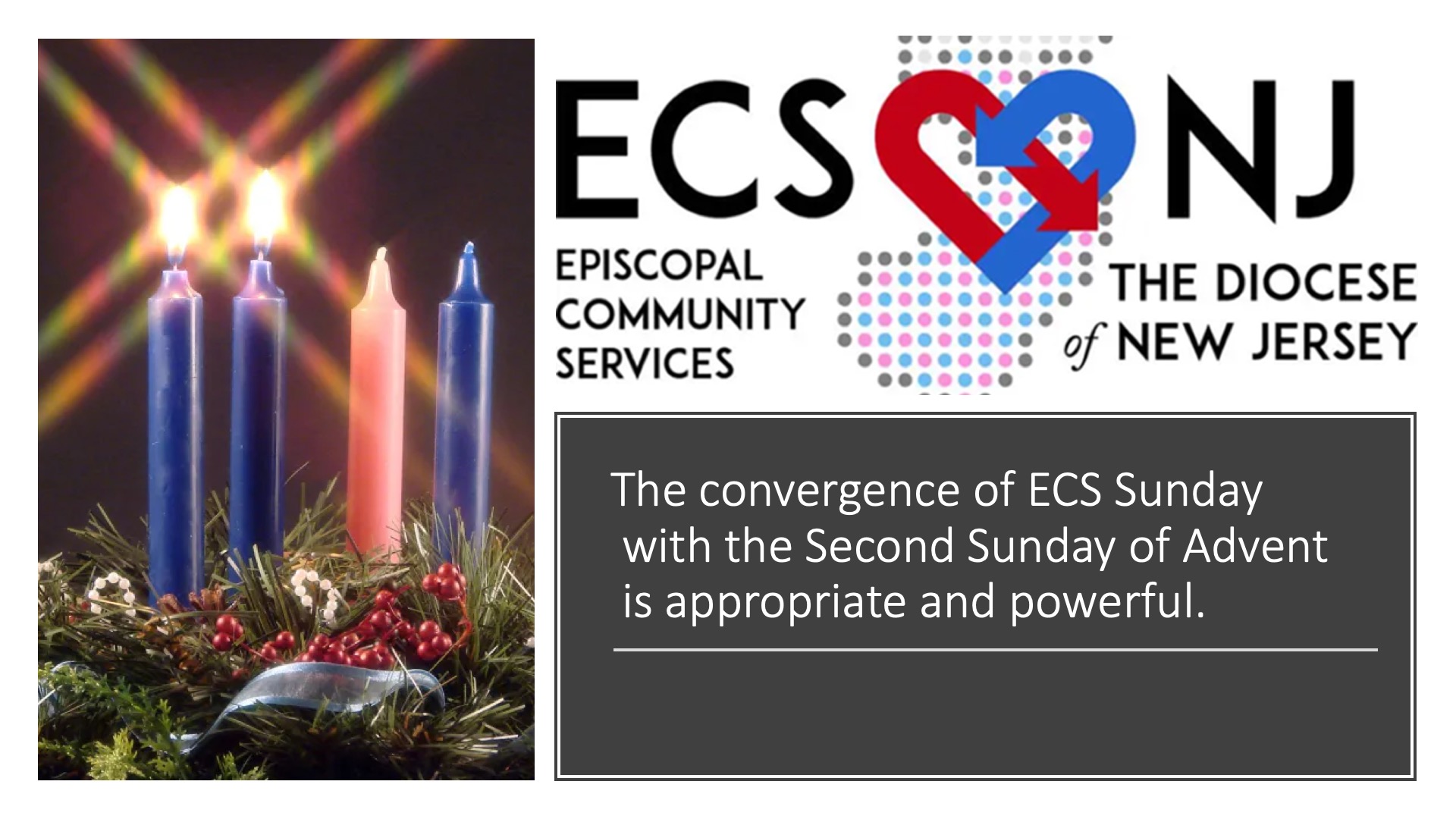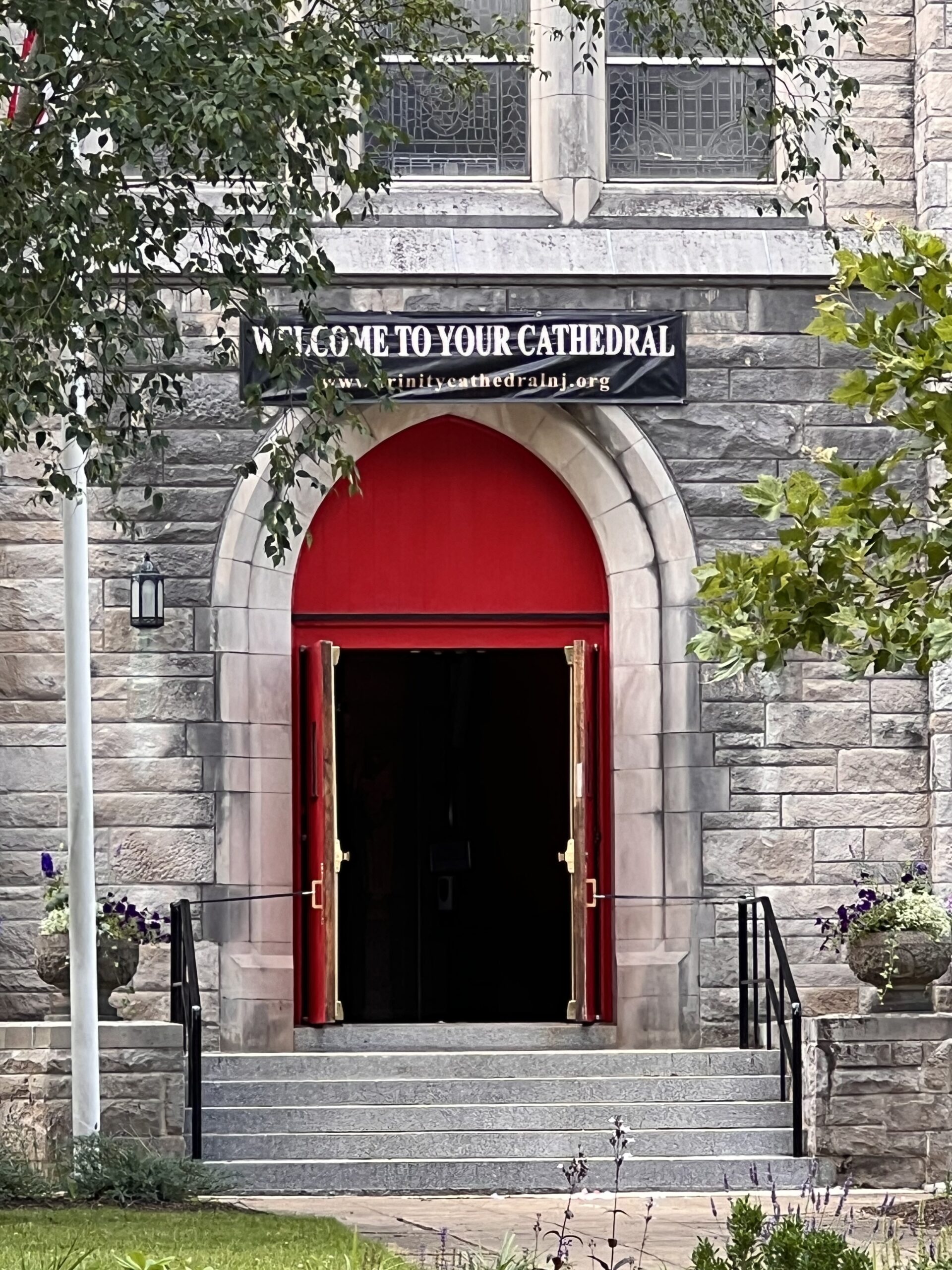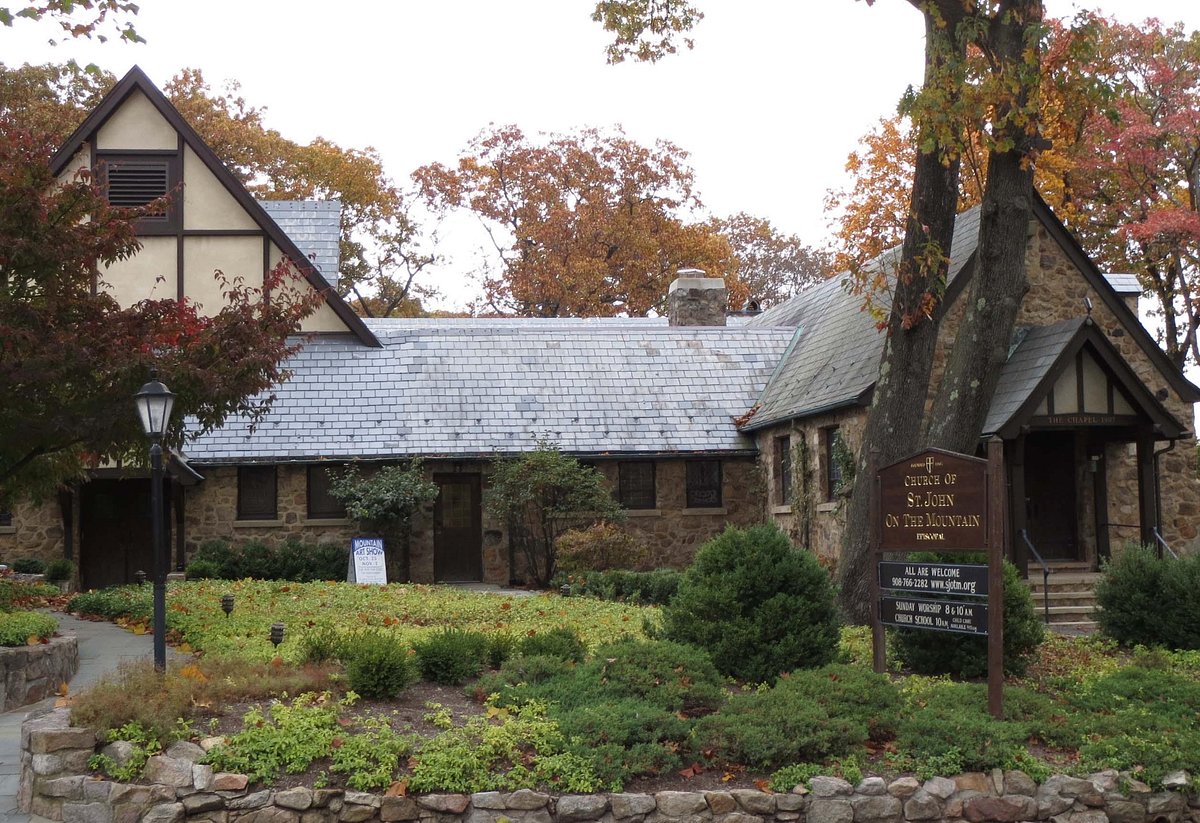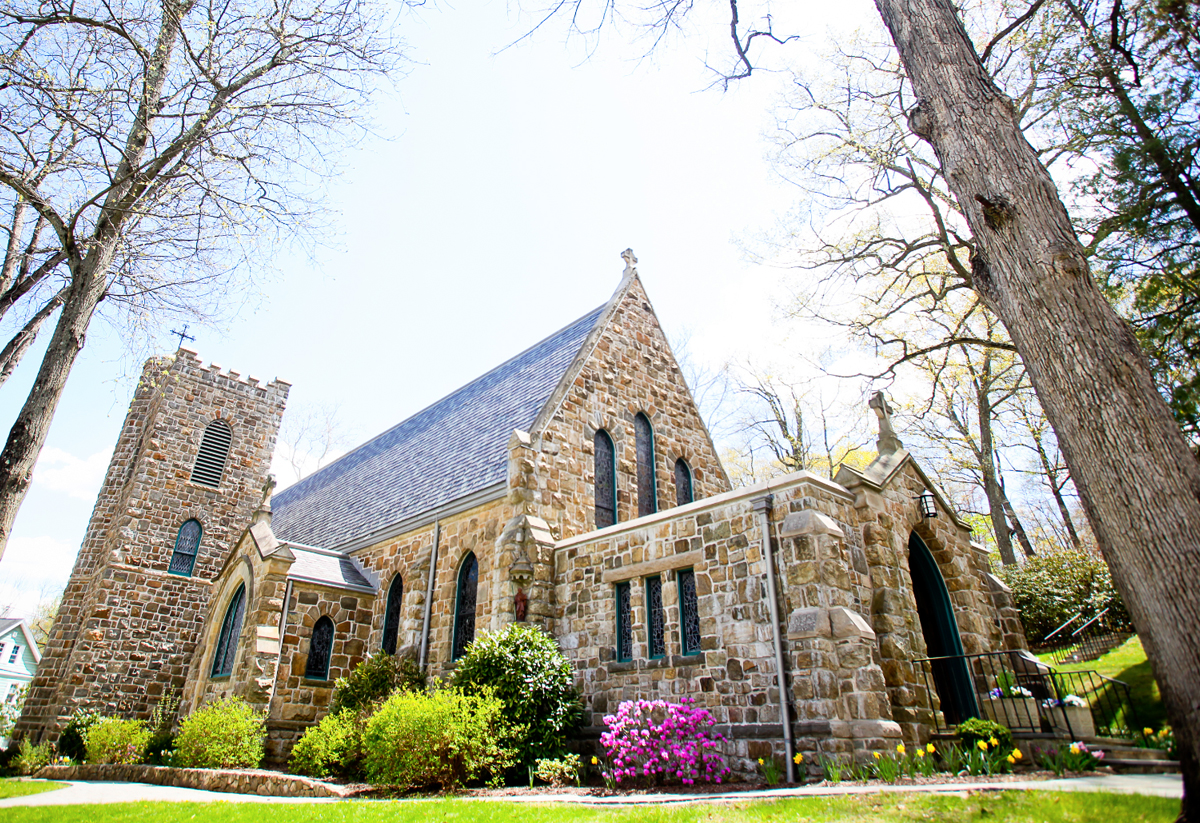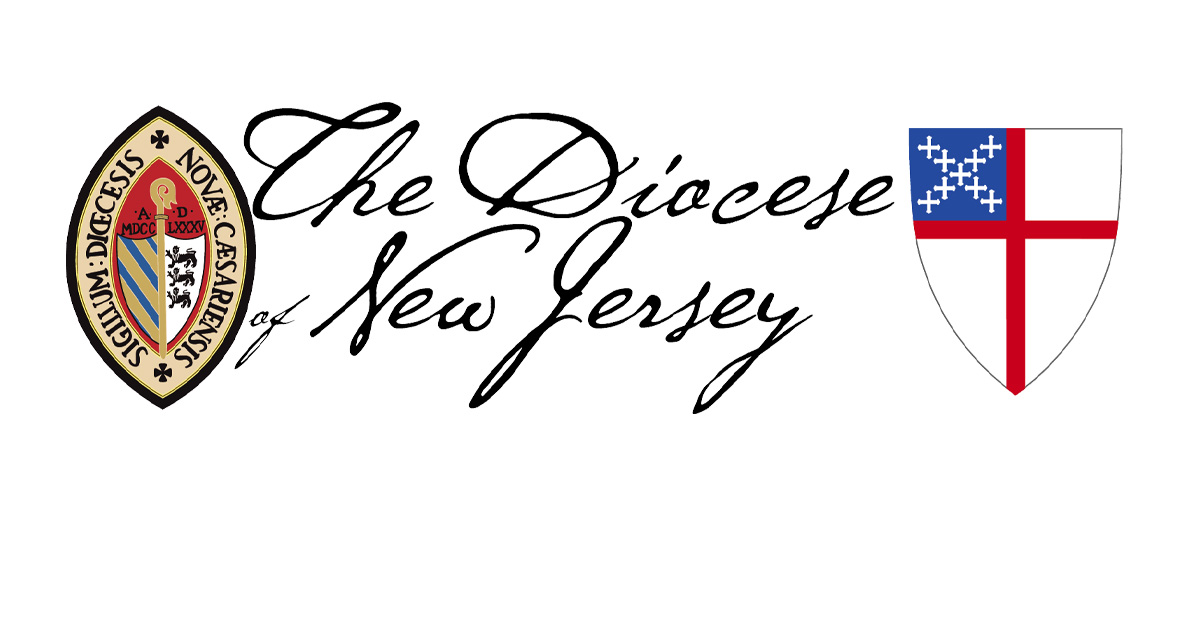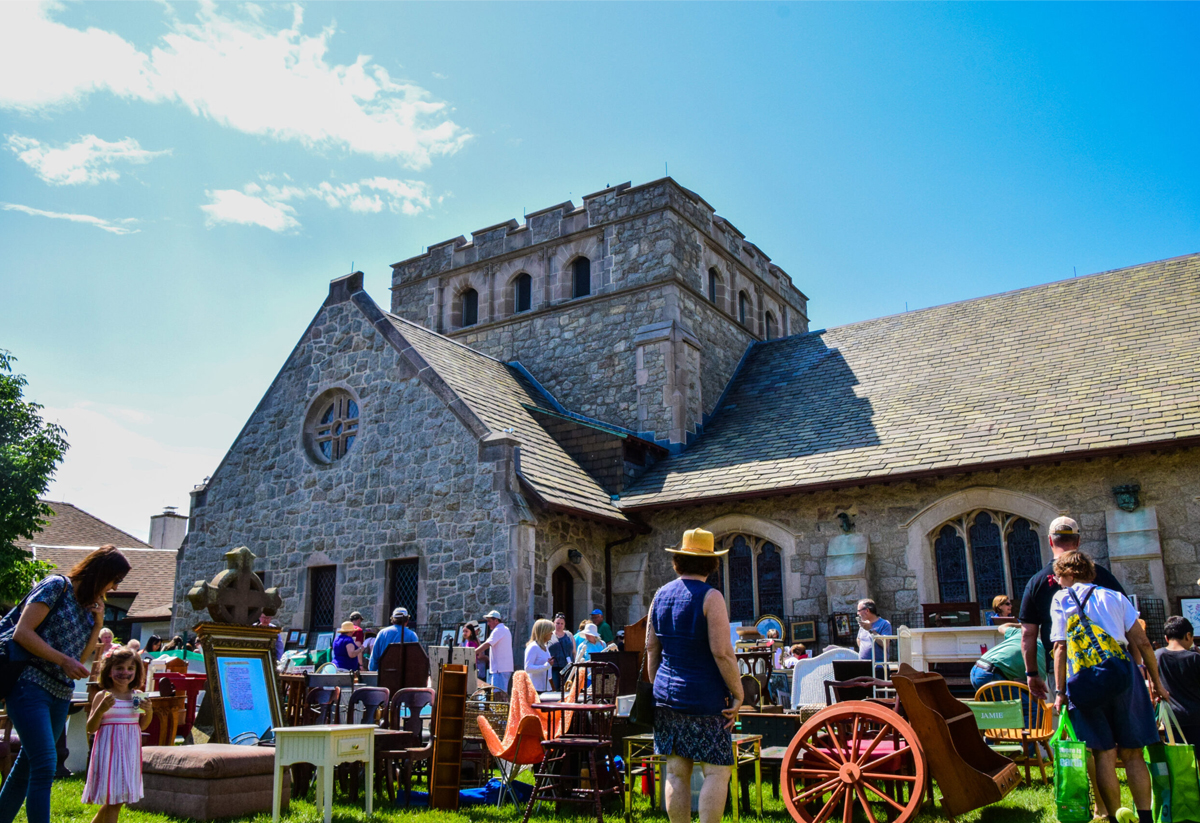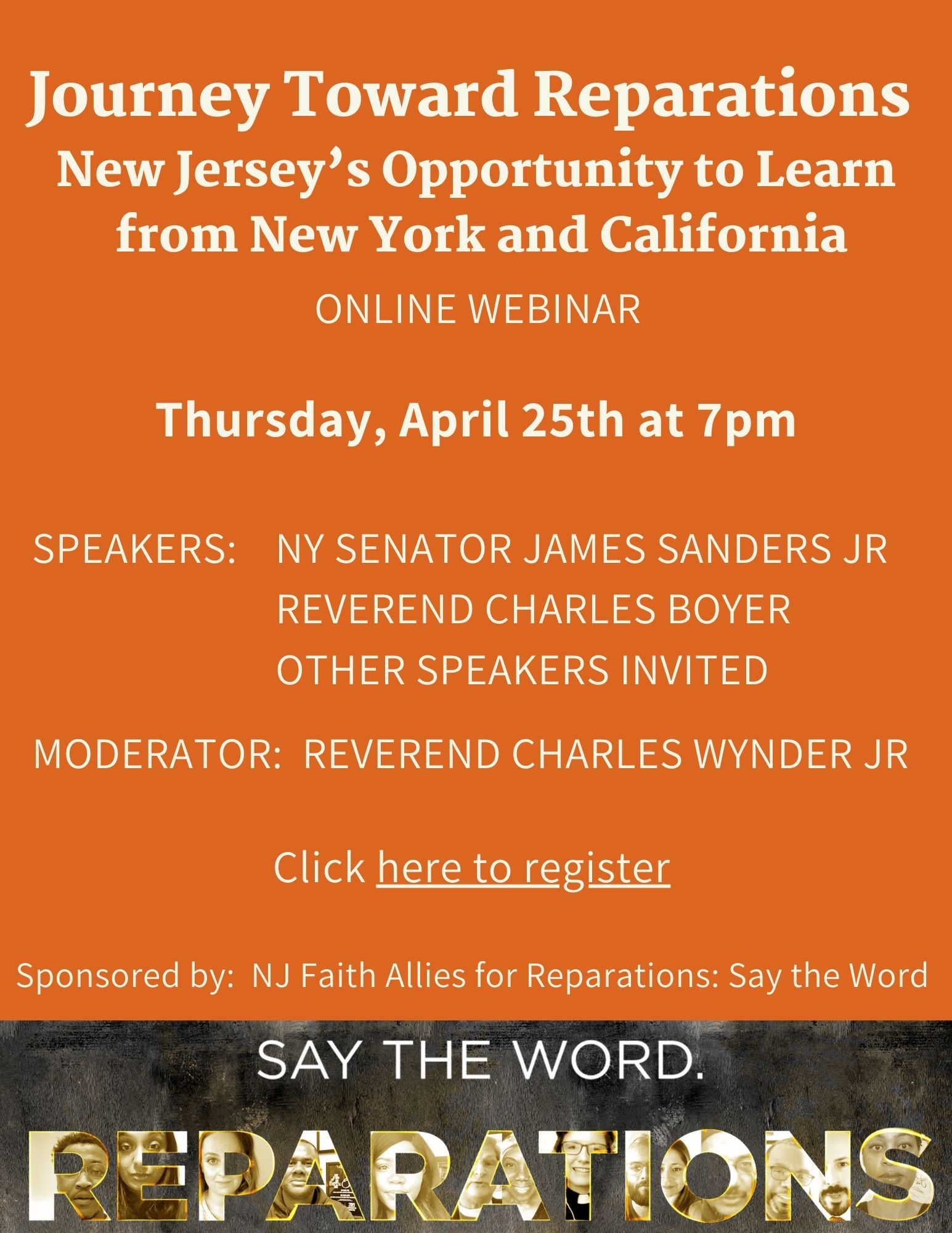Episcopal Community Services of the Diocese of New Jersey Sunday—Online Sermon
2nd Sunday in Advent – Year C – December 5, 2021
Philippians 1:3-11; Luke 3:1-6
Preacher: The Right Reverend William H. Stokes, Bishop of New Jersey
The voice of one crying out in the wilderness:
‘Prepare the way of the Lord,
make his paths straight.—Luke 3:4
Today has been designated ECS Sunday in the Diocese of New Jersey. ECS Sunday is a diocesan-wide initiative “to raise awareness, funds and inspiration for Episcopal Community Services of the Diocese of New Jersey,”[1] a ministry that we gave birth to just over a year ago. I’m grateful to The Reverend Canon Joan Mason and Sharisma Ubiera, Co-Chairs, and all the members of the Advisory Board, who have done outstanding work in organizing the launch of this ministry with strong support from CCS Fundraising, particularly Jamie Papageorgiou. I also want to acknowledge Fr. David Snyder who has served as part-time Development Officer and also our own Chief Operating Officer of the Diocese of New Jersey, Canon Phyllis Jones.
ECS is already making a meaningful and positive impact across the diocese through its education and advocacy work and through the grants it is making to address vital human needs in this part of God’s dominion. The convergence of ECS Sunday with the Second Sunday of Advent is appropriate and powerful.
Each year on the Second Sunday of Advent, John the Baptist appears on the scene. We have just entered Lectionary Year C. During this lectionary year, we will spend most of our time in Luke’s Gospel. So, on this 2nd Sunday in Advent, we have Luke’s account of John’s entrance:
In the fifteenth year of the reign of the Emperor Tiberias, when Pontius Pilate was governor of Judea, and Herod was ruler of Galilee, and his brother Philip ruler of the region of Iturea and Trachonitis, and Lysanias ruler of Abilene, during the high priesthood of Annas and Caiaphas, the word of God came to John son of Zechariah in the wilderness (Luke 3:1-2).
Luke’s description of John’s entrance is august, serious, and sober. Luke signals to us, the reading and listening community, that the events he is narrating are not mundane or pedestrian. They relate to the larger issues of the world and its history. For Luke, politics and religion cannot be separated.
In her commentary on this passage for the Working Preacher website, New Testament scholar Audrey West observes, “Luke’s Gospel proclaims: God does not remain distant from the world. God’s reign enters time and space on the stage of world history, where life is too often constrained by people and events beyond one’s control.”[2]
She continues, “The purpose of John’s prophetic calling is not only to prepare the way of the Lord (Luke 3:4), but to prepare the people to receive the Lord (Luke 1:16-17) through repentance for the forgiveness of sin.”[3]
The word and concept of “repent” appears in both the Old and New Testaments. The word can mean to have feelings of regret for something. More often, it means to act on those feelings by changing one’s behavior.[4]
In Greek, the word is metanoia which literally means “turning away from one thing and turning completely toward another”[5] and includes, not only feelings and expressions of regret and remorse, but also conversion – that is a change not just in behavior, but in orientation.
John was concerned about the orientation of his hearers. He came upon the scene during a time of enormous economic and social distress. It was a time when there was great disparity of wealth and power. It was also a time of great and brutal violence.
John had an acute sense of all of this. Like the prophets of old, he could see through the pretensions of the culture into which God had called him. Stirred by the Holy Spirit, John knew the world in which he lived was not the world God intended; not the world that God dreamed and longed for. John was called by God to pronounce judgement on the world and to urge it to a new reality, a reality called the kingdom of God, in which God’s grace and God’s love reign.
Let’s face it, the world in which we live today is very much like the world in which John lived. We live in a time of great disparity between the rich and the poor.[6] We live in a time of social distress, with dangerous levels of anger and acute political polarization.[7] It is a time of unchecked violence, so perverse that teenagers are even encouraged to bring semi-automatic weapons into the nations streets and kill without consequence.[8]
It is difficult to discern God’s kingdom, the kingdom God of God’s hopes and desires, in the midst of it all. As believers in Jesus Christ and his love, I bet many of us often feel we are, like John the Baptist, voices crying out in the wilderness, “Make way, make way, prepare the way of the Lord. We also know that sometimes, sometimes, if we look carefully, we can discern signs of God’s kingdom and of God’s love. Consider some of what is happening in our diocesan community.
In Asbury Park, Episcopalians of Trinity Church assist homeless persons in finding permanent housing; provide these persons with the support and tools they need to stabilize their lives so they don’t become homeless again.[9]
In South Jersey, one of our churches assists women who have been victims of domestic abuse and addiction rebuild their lives through GED preparation, obtaining a driver’s license; provide them with training and coaching for employment readiness.[10]
Two churches, Trinity Church, Princeton and St. Michael’s, Trenton have partnered to provide a safe haven in inner city Trenton to counter street violence and gang participation, joining with other community partners to offer after-school resources and support.[11]
In New Brunswick, Christ Church is also working with community partners to purchase and provide food and other living essentials to meet the needs who suffer from poverty and food insecurity.[12]
In Elizabeth, San Jose and St. John’s Episcopal Churches have combined to advocate for immigrants and offer immigration assistance, including legal assistance in Elizabeth to a community that serves a large immigrant population.[13]
In Palmyra, the small community of Christ Church is offering worship and fellowship to people of all ages who live with the challenges of autism in the adjacent areas of Burlington County.[14]
Episcopal Community Services of the Diocese of New Jersey recently granted $117,000 to support these and other ministries.[15] We were able to make these grants because churches and individuals inside the diocese, and even some persons outside the diocese, recognize that Episcopal Community Services of the Diocese of New Jersey allows us to join together in this part of the world to do God’s work; that together we are stronger than we could ever be apart. Thank you to all who have made financial contributions to ECS-NJ already, and especially those who have made Founding level donations. I am deeply grateful and I know the ministries who are benefiting as a result of grants from Episcopal Community Services of New Jersey are deeply grateful as well.
The mission and ministry of Episcopal Community Services occurs at the intersection of human need and injustice which inevitably go hand in hand. Through ECS, we have a means to manifest the “compassion of Christ” to borrow Paul’s language from his Letter to the Philippians and our reading today (Phil. 1:8).
On this Second Sunday of Advent, in the year 2021, John the Baptist calls to us across the ages to prepare once again the way of the Lord, to turn to God, to seek and strive for the kingdom and its righteousness, to do the work of justice and compassion. Episcopal Community Services of the Diocese of New Jersey provides us with the means and opportunity to do this – through advocacy work and education, through responding to human needs, through our financial support. In this God’s love overflows;[16] healing and reconciliation take place. In this a harvest of righteousness[17] begins to bear fruit preparing anew the way of the Lord.
_________________
Notes
[1] See ECS-NJ website page at https://dioceseofnj.org/ecs/
[2] West, Audrey “Commentary on Luke 3:1-6 on the Working Preacher website for Second Sunday of Advent, December 5, 2021 found at https://www.workingpreacher.org/commentaries/revised-common-lectionary/second-sunday-of-advent-3/commentary-on-luke-31-6-5
[3] Ibid.
[4] See “repentance” in HarperCollins Bible Dictionary ed. Paul J. Achtemeier (San Francisco: HarperSanFrancisco, 1996).
[5] See metanoia in A Greek-English Lexicon of the New Testament and Other Early Christian Literature 2nd Edition ed. Walter Bauer, Gingrich, et. al (Chicago-London: University of Chicago Press, 1979).
[6] See “5 shocking facts about extreme global inequality and how to even it up” – Oxfam International website found at https://www.oxfam.org/en/5-shocking-facts-about-extreme-global-inequality-and-how-even-it
[7] See PRRI Survey Competing Visions of America: An Evolving Identity or a Culture Under Attack? Findings from the 2021 American Values Survey – 11.01.2021 which reports that “After the violent attacks on the U.S. Capitol on January 6, 2021, the prospect of political violence threatening a peaceful transfer of power has become more than an abstract question….[N]early one in five Americans (18%) agree with the statement ‘Because things have gotten so far off track, true American patriots may have to resort to violence in order to save our country.’ Republicans (30%) are more likely to agree with this than independents (17%) and Democrats (11%). Among Republicans who most trust far-right news sources, agreement increases to 40%, compared to 32% among those who most trust Fox News and 22% among those who most trust mainstream news sources.” Found at https://www.prri.org/research/competing-visions-of-america-an-evolving-identity-or-a-culture-under-attack/
[8] See Lyons, Patrick “The jury acquitted Kyle Rittenhouse on all these five counts” – The New York Times – November19, 2021 found at https://www.nytimes.com/2021/11/19/us/kyle-rittenhouse-charges-acquittal.html
[9] See “ECS-NJ awards $117,000 in grants to diocese’s churches” – Episcopal News Service – October 22, 2021 found at https://www.episcopalnewsservice.org/pressreleases/ecs-nj-awards-117000-in-grants-to-dioceses-churches/
[10] Ibid.
[11] Ibid.
[12] Ibid.
[13] Ibid.
[14] Ibid.
[15] Ibid.
[16] Phil. 1:9
[17] Phil. 1:11

